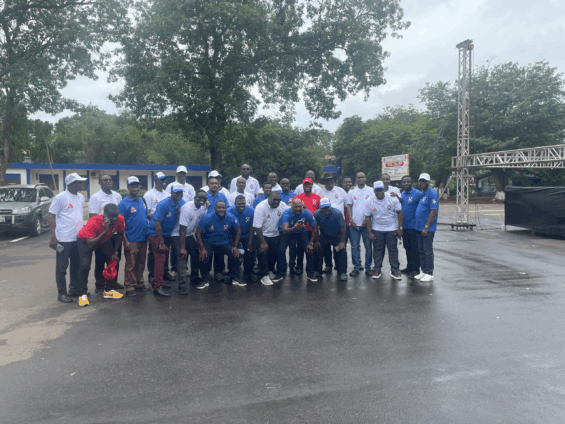As part of their 25th anniversary celebration, the Ɔdadeɛ 2000 Year Group of the Presbyterian Boys’ Secondary School (PRESEC-Legon) has announced a major infrastructure initiative—renovating the school’s kitchen and introducing a sustainable green energy system to improve student welfare and promote environmental sustainability.
Speaking at the launch of the anniversary celebrations on Saturday, May 17, group member Alain Gbeasor outlined the ambitious project, which will not only modernise the school’s kitchen facilities but also introduce a biogas-powered energy system.
“As part of our 25 years anniversary celebrations, we are embarking on a programme to renovate our kitchen and then create a sustainable green energy kitchen,” Mr Gbeasor stated.
He explained that the entire kitchen will be retooled and retrofitted with modern equipment to reflect PRESEC’s commitment to innovation and progress.
“We are going to retool the kitchen area and retrofit it for the students to showcase that PRESEC is the school of the future, and our dining hall will be properly set up,” he said.

In addition to the kitchen upgrades, the group plans to construct a modern facility for kitchen staff, complete with resting areas, offices, and changing rooms.
“We are building an ultramodern area for our kitchen staff so they can relax. They can have offices, changing rooms,” he added.
A key highlight of the initiative is the integration of a biogas system to power the kitchen—positioning PRESEC as one of the first schools in Ghana to operate a fully green kitchen.
“We are also doing a biogas kitchen. You know, that will be one of the first schools in Ghana that is going fully green on the utilisation of our kitchen,” Mr Gbeasor noted.
He emphasised that the anniversary project aims to benefit not just current students but also set an example in sustainable development and education infrastructure.
“We hope that these resources in place will make PRESEC the school that indeed we want to make of it,” he concluded.
The Ɔdadeɛ Y2K initiative aligns with Ghana’s national clean cooking agenda, which aims to achieve 50% LPG usage penetration by 2030. Currently, over 54.3% of Ghanaian households rely on solid biomass—primarily firewood (31.1%) and charcoal (23.2%)—for cooking, contributing to indoor air pollution and environmental degradation.
Indoor air pollution is a major public health challenge, responsible for approximately 16,000 premature deaths annually, with respiratory illnesses disproportionately affecting women and children.
The project by the Ɔdadeɛ Y2K group underscores the importance of private sector and alumni involvement in supporting national efforts to transition to cleaner energy solutions. With deforestation, black carbon emissions, and health complications on the rise, such targeted interventions at the school level reflect a forward-thinking and responsible approach to sustainable development.
This anniversary project also contributes to Ghana’s broader climate and energy commitments under frameworks such as the National Energy Policy (2022), the Renewable Energy Master Plan (2019), and the Nationally Determined Contributions (NDCs-2015).
DISCLAIMER: The Views, Comments, Opinions, Contributions and Statements made by Readers and Contributors on this platform do not necessarily represent the views or policy of Multimedia Group Limited.
DISCLAIMER: The Views, Comments, Opinions, Contributions and Statements made by Readers and Contributors on this platform do not necessarily represent the views or policy of Multimedia Group Limited.
- President Commissions 36.5 Million Dollars Hospital In The Tain District
- You Will Not Go Free For Killing An Hard Working MP – Akufo-Addo To MP’s Killer
- I Will Lead You To Victory – Ato Forson Assures NDC Supporters
Visit Our Social Media for More



